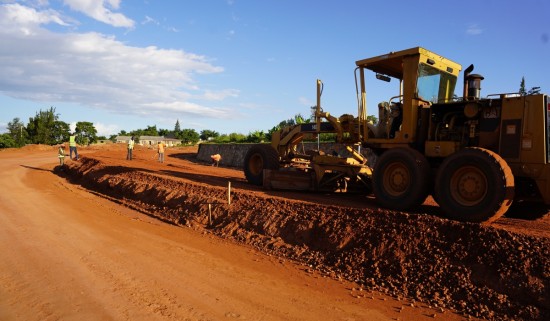Let's dive deeper on What's the Secret to Rwanda's Industrial Success?
Category: Blog | Published: Thu, 13-02-2025

Rwanda's vision for a thriving, industrialized economy is within reach, but the path to success hinges on a critical element: engineering. Simply focusing on factories and production lines won't cut it. Without a robust engineering foundation, Rwanda's industrial potential risks being severely limited. Think of it like building a house without a solid blueprint – you might have the materials, but the structure is destined to crumble.
So, why is engineering so crucial? Let's break it down:
1. The Brains Behind the Machines: Technical Expertise and Innovation
Industrialization isn't just about setting up shop; it's about leveraging cutting-edge technology and processes. Engineers are the masterminds who design, build, and maintain the complex systems that power modern manufacturing. They're the innovators, constantly pushing the boundaries of what's possible and driving the technological advancements that fuel industrial progress. Without their expertise, Rwanda's industries would be stuck in the past, unable to compete in the global arena.
2. Efficiency is King: Boosting Productivity and Cutting Costs
In the competitive world of industry, efficiency is paramount. Engineering plays a vital role in optimizing operations, ensuring systems work seamlessly, and enabling sustainable scaling. Think automation, robotics, and process optimization – all driven by engineering ingenuity. These innovations translate directly into lower production costs, increased productivity, and enhanced competitiveness. In short, engineers are the efficiency experts, making Rwandan industries leaner, meaner, and ready to compete.
3. Laying the Foundation: Infrastructure Development
Industrialization needs a strong backbone – reliable infrastructure. We're talking about energy grids, water supply systems, transportation networks, and effective waste management. These aren't just built; they're engineered. Engineers are the architects of modern infrastructure, designing and implementing the solutions that underpin industrial growth. Without them, Rwanda's industrial ambitions would be stranded without the necessary support systems.
4. Going Green: Sustainability and Eco-Friendly Practices
Sustainable industrialization is no longer a choice; it's a necessity. And once again, engineering takes center stage. Engineers are at the forefront of developing green technologies and minimizing environmental impact. From energy-efficient manufacturing processes to waste reduction technologies, they're the driving force behind eco-friendly industrial practices. This ensures that Rwanda's industrial growth is not only economically sound but also environmentally responsible.
5. Building the Workforce of the Future: Job Creation and Skills Development
Industrialization creates jobs, but those jobs require skilled professionals. By prioritizing engineering, Rwanda is investing in a sustainable pipeline of talent. A focus on engineering education ensures a highly skilled workforce capable of meeting the demands of emerging industries. This not only fuels industrial growth but also empowers Rwandans with valuable skills, contributing to the overall development of the nation.
6. Taking on the World: Global Competitiveness
Rwanda aims to be a major player in the regional and global economy. To achieve this, Rwandan industries must produce goods that meet international standards of quality, safety, and innovation. Engineering is the key to unlocking this potential. It drives the improvements that ensure Rwandan products can compete on the world stage, boosting exports and strengthening the nation's economic standing.
Engineering isn't just a technical field; it's the engine that will drive Rwanda's industrial revolution. By investing in engineering education, fostering innovation, and empowering engineers to lead the charge, Rwanda is laying the foundation for a prosperous and sustainable industrial future. It's not just about building factories; it's about building a nation.









